(CPV) – Vietnam is one of the pioneering countries globally to apply system change to build a circular economy on plastics… To be able to successfully build a circular economy, reduce pollution Plastic waste pollution, the Government, research agencies and people of Vietnam as well as around the world need to actively respond to activities to implement policies to promote sustainable production, business and consumption.
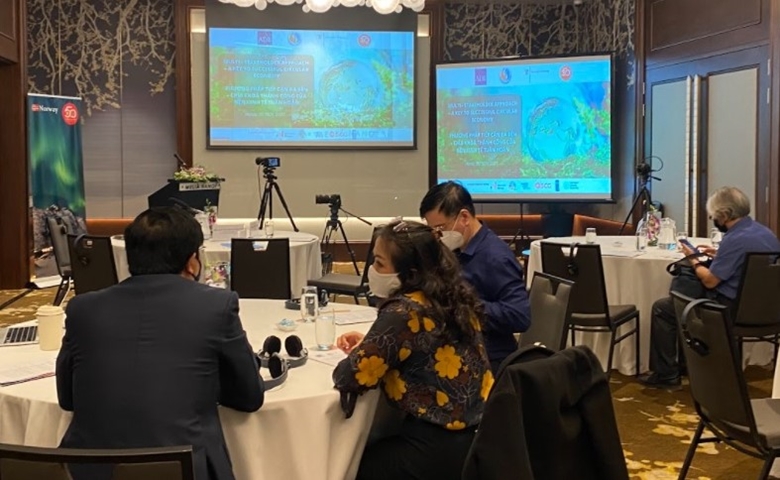 |
| Workshop “Multi-Stakeholder Approach – The Key to Success of the Circular Economy” was held in an online format |
On November 30, the General Department of Environment under Vietnam’s Ministry of Natural Resources and Environment (MONRE), Norwegian Embassy in Hanoi, Embassy’s commercial agency – Innovation Norway, Asian Development Bank (ADB) co-organized the webinar: “Multi-Stakeholder Approach – The Key to Success of the Circular Economy”.
Attending the workshop were: Mr. Nguyen Hung Thinh, Deputy Director General, General Department of Environment, MONRE; Mr. Jan Wilhelm Grythe, Deputy Ambassador of Norway to Vietnam; Mr. Andrew Jeffries, Country Director of ADB Vietnam; with the online presence of partners, speakers, UNDP Vietnam, and more than 100 representatives representing international donor agencies, diplomatic missions in Vietnam, relevant units of The Vietnam Environment Administration and the Ministry of Natural Resources and Environment, NGOs, universities, and the business sector are partners that have been actively supporting and promoting the circular economy in Vietnam.
Speakers at the Workshop shared their experiences and in-depth knowledge on issues of integrated solid waste management and climate change; coordination between central and local governments and its significance in achieving the net zero emissions and circular economy goals; how to coordinate collective actions and investments for the circular economy, as well as integrated resource management systems and solutions to optimize waste management in a circular and neutral way carbon.
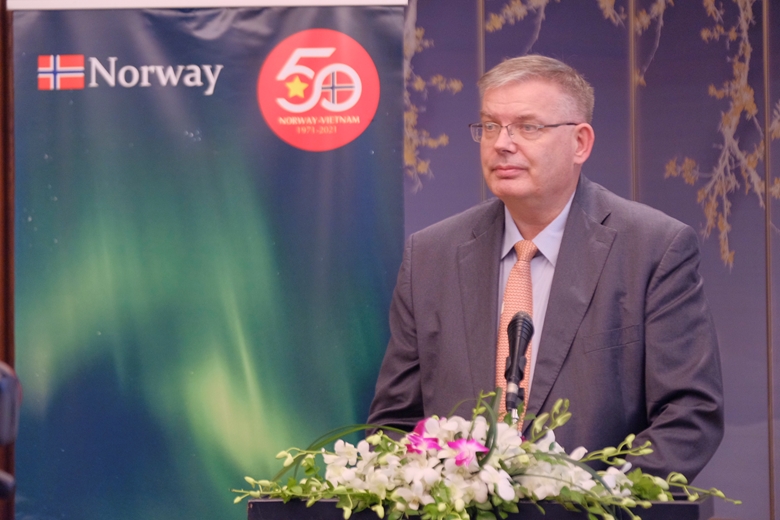 |
| Norwegian Deputy Ambassador to Vietnam Jan Wilthem Grythe |
Speaking at the opening of the Workshop, Norwegian Deputy Ambassador to Vietnam Jan Wilthem Grythe said: “Norway’s multi-stakeholder approach, in which government agencies/authorities at all levels work closely with institutions research, the private sector, and NGOs in policy making and implementation, has proven to be a successful model in many areas (including circular economy for plastic industry) We wanted to share this model with Vietnam as it has helped Norway achieve its circular goal.The presence of Norwegian delegates in this Webinar is a testament to our This model of synergies is especially relevant in the presence of international development and financial institutions such as ADB – a close partner in Asia of the Norwegian Ministry of Foreign Affairs and UNDP”.
Nguyen Hung Thinh, Deputy Director General, General Department of Environment, Ministry of Natural Resources and Environment, said: “Vietnam is one of the pioneering countries globally applying system change to build a circular economy on plastics. … To be able to successfully build a circular economy and reduce plastic waste pollution, the Government, research agencies and people of Vietnam and the world need to actively respond to development activities. declare policies to promote sustainable production, business and consumption; waste management towards treating waste as a resource; expand the responsibility of manufacturers in recycling and waste treatment activities; promoting reuse and recycling of plastic waste goes hand in hand with limiting single-use plastics and non-biodegradable packaging.”
According to Andre Jeffries, ADB Country Director for Vietnam, “urbanization and rapid increase in waste generation is a persistent problem that accompanies Vietnam’s growth. Although many cities have become economic centers in recent years, the reality is that many of them need to further improve their key infrastructures and services, in including the solid waste management system”. “The COVID-19 pandemic is an opportunity to rebuild our communities on sustainable models to create a greener and better future for all. And one of the approaches to achieving that. To achieve this is the transition to a circular economy,” he emphasized.
As of 2019, an estimated 9.3 billion tons of virgin plastic has been produced on a global scale. 6.3 billion tons of which ended up as plastic waste; only about 9% of this waste is recycled, 12% is treated by incineration and the remaining 79% is landfilled. This means that nearly 5 billion tons of plastic waste is accumulating in landfills worldwide. They will break down gradually and leak into aquifers and rivers, becoming one of the constant sources of microplastic pollution of our oceans.
Vietnam has set many ambitious targets in reducing, reusing and recycling (3R) plastic waste. For example, the Prime Minister’s Decision No. 1316/QD-TTg dated July 22, 2021 approving the Project on Strengthening Plastic Waste Management in Vietnam, which sets the goal of collection and reuse use, recycle or treat 85% of the total amount of plastic waste generated; reduce 50% of plastic waste in the sea; 100% of places, tourist facilities and hotels do not use non-biodegradable plastic bags and single-use plastic products, etc. Recently, MONRE, together with UNDP, announced the establishment of the Weekly Economic Network. Vietnam Circular Economy Hub aims to raise awareness and build capacity for all stakeholders, including government agencies, businesses, civil society organisations, and academia/research in the application of Circular Economy principles; create synergy, and integrate financial and technical resources to support Vietnam’s transition into a circular and low-carbon development country.
At the Workshop, the Asian Cities Development Initiative (CDIA) was committed to providing Technical Assistance to Vung Tau city. Accordingly, CDIA will prepare a comprehensive solid waste management investment program for Vung Tau city, including all stages from waste separation at source, to collection and classification at the central facility. transfer, recycling and treatment, down to the final stage of waste disposal. First, CDIA will work with the Coalition to End Plastic Waste to conduct a feasibility study that identifies the priority plastic waste components. One of the objectives of the Project is to build a solid network connecting stakeholders including national and international organizations, research institutions/agencies, businesses, and government agencies. in solid waste management along the entire value chain, while promoting/promoting investments to reduce the leakage of plastic waste into the environment. The participation of stakeholders who are leading organizations and industries around the world in this Project will help transmit valuable knowledge and experienceson measures to optimize waste management processes towards carbon cycling and neutrality for local governments in Vietnam in general, and Vung Tau city in particular.
Independence flexible
Source: https://dangcongsan.vn/king-te/hop-tac-vi-su-thanh-cong-cua-nen-king-te-tuan-hoan-tai-viet-nam-598510.html
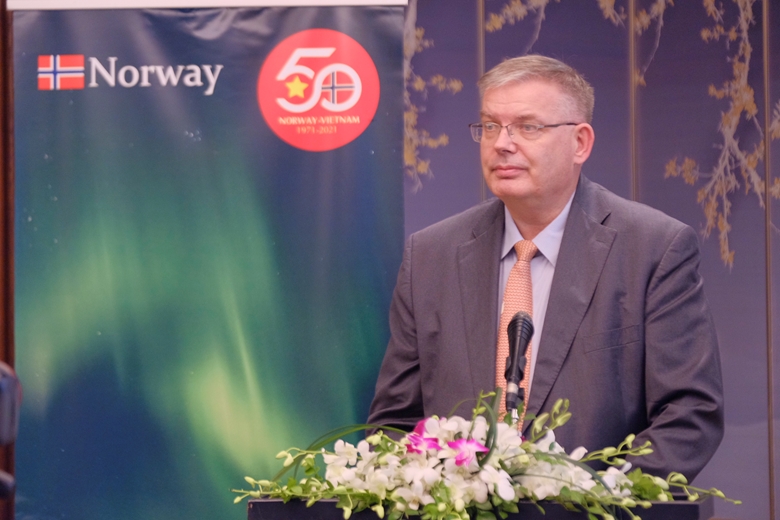
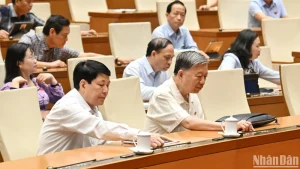
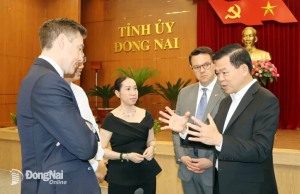
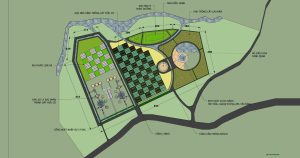

Leave a reply